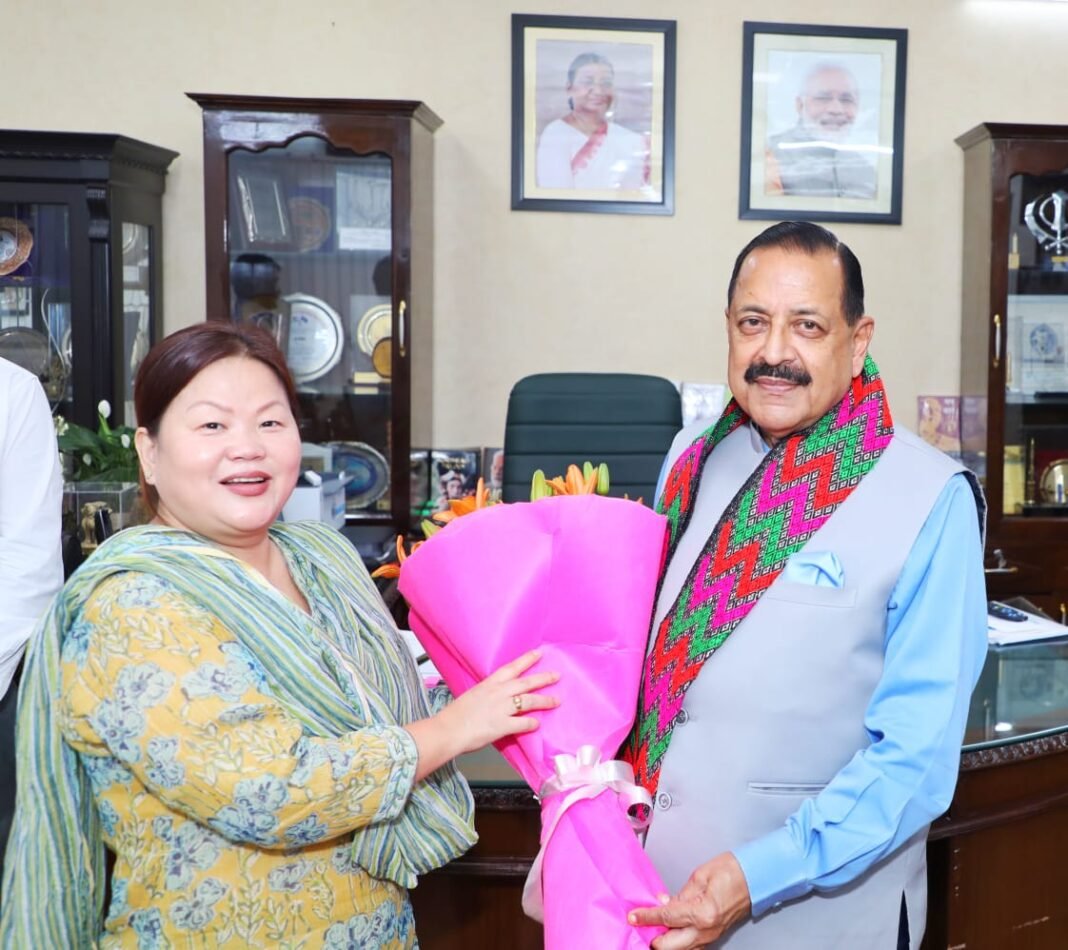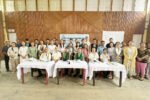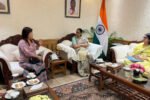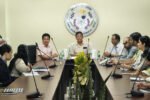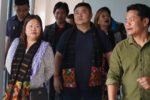HT Bureau
NAMSAI, July 12: Arunachal Pradesh Women and Child Development Minister Dasanglu Pul met Union Minister of State (Independent Charge) for Science and Technology, Jitendra Singh, in the national capital on Friday to discuss a set of key proposals focused on biodiversity conservation, scientific innovation, and the promotion of a sustainable bioeconomy in the state.
According to an official statement, the meeting centered on Pul’s proposal to establish India’s first Ex-Situ Germplasm Bank in Arunachal Pradesh, a landmark initiative aimed at preserving rare, endangered, and economically important plant species native to the region.
The bank, if approved, would serve as a crucial national repository for safeguarding genetic diversity in the face of environmental and anthropogenic threats.
Minister Pul also put forward the proposal to set up an Eastern Arunachal Regional Centre for Bioresource Management and Development.
Designed to leverage the region’s immense ecological wealth, the centre would focus on the sustainable utilisation, conservation, and scientific management of bioresources while offering capacity-building opportunities to local communities.
Underscoring the role of biotechnology and entrepreneurship in rural and tribal development, Pul further proposed the establishment of a Bio-NEST Bioincubator at Roing.
The incubator would act as a launchpad for biotech startups, fostering innovation, research collaboration, and value-added enterprise in sectors such as herbal medicine, agriculture, and environmental technology.
The minister also appealed to Singh for the expeditious release of core grant support to the Arunachal Pradesh State Council for Science & Technology (APSCS&T), citing urgent staffing issues and institutional development needs.
She emphasised that timely assistance would ensure uninterrupted scientific activities and strengthen research infrastructure across the state.
“Our state is home to an incredible range of biodiversity, and we must act now to preserve it while building a strong foundation for scientific research and innovation,” said Pul. “These proposals are designed not just to conserve, but to convert our natural wealth into economic opportunity for local communities,” she added.
Responding to the proposals, Jitendra Singh reaffirmed the Government of India’s commitment to inclusive and sustainable development in the Northeastern region.
He praised the vision and forward-looking approach of the Arunachal Pradesh government in integrating science and technology with environmental conservation and livelihood generation.
“The development of the Northeast has been one of Prime Minister Narendra Modi’s highest priorities,” Dr Singh said. “The transformation since 2014 is evident—what was once a region struggling with connectivity is now witnessing unprecedented infrastructural, technological, and human resource growth.”
He assured full support from the Ministry of Science and Technology, noting that the proposed projects align well with the Centre’s long-term vision of empowering border and tribal states through innovation, research, and green economic development.
The meeting concluded on a positive note, with both ministers agreeing to maintain close coordination for the timely implementation of strategic science and biodiversity-related projects in Arunachal Pradesh.


